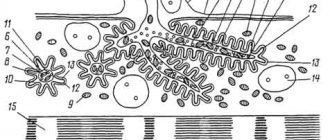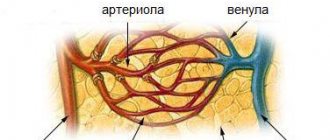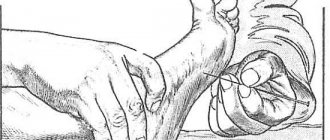Our ancestors had a strong nervous system, but they were controlled by people with a weak nervous system. With each new generation, the number of people with a weak nervous system increases. However, both weak and strong nervous systems have their hidden, undeniable advantages.
According to academic concepts, the strength of the nervous system is an innate indicator. It is used to indicate the endurance and performance of nerve cells, and we completely agree with this. The strength of the nervous system “reflects the ability of nerve cells to withstand, without going into an inhibitory state, either very strong or long-acting, although not strong, excitation.”
With this definition, we are offered to classify all persons - hot-tempered, impatient, impetuous, prone to emotional breakdowns - as a strong nervous system: after all, their nerve cells can withstand short-term excitement, “without going into an inhibitory state.” We can no longer agree with this.
If we nevertheless move away from the classical definition and use the concept of “strength of the nervous system” in its semi-everyday, everyday understandable meaning, then pressure and maintenance of activity should be considered only one of the manifestations of this force, but not the only one. The strength of the nervous system also reveals itself in restraining undesirable elements of activity: the force of inhibition must balance the force of excitation.
In order for the nervous system to really be able to withstand a sufficiently long-term excitation, cellular energy must be spent economically and rationally; there must be a protective, protective, constructive slowdown. Inhibition is a necessary component of overall Strength. Inhibition coordinates the activity of the nervous system.
A.I. Solzhenitsyn argued that people with a strong nervous system survived in Stalin’s camps. Its distinctive property is the ability to tolerate super-strong stimuli. A weak nervous system does not hold the signal well and burns out like a candle when it cannot respond to the offender or fight back. Remember the wonderful scenes of school life: he hit you with a compass in the side, and you hit him on the head with a book. And it doesn’t matter what the teacher arranges for both of you now! By the way, if events developed according to this scenario and the teacher took an active part in the “combat operations,” then he definitely had a weak nervous system.
A person with a weak nervous system not only cannot wait (endure), he also has difficulty retaining new information (concerning himself and others) and constantly “leaks” it along the way to literally the first person he meets. That is why a psychologist, when organizing personal growth training, strives to build a schedule of classes as tightly as possible and keep clients as long as possible within a given group, inside a given room (about six hours), preventing people with a weak nervous system from simply discharging outside.
Taking a look at the history of the country, you come to the conclusion that our ancestors had a predominantly strong nervous system. Our great-grandfathers and grandfathers had a predominantly strong nervous system, but they were controlled by people, for the most part, with a weak nervous system! And no matter how much every individual modern person would like to look “strong,” every year, with every new generation, the concentration of people with a weak nervous system increases. It’s just that a weak nervous system has its own undeniable advantage, which we deliberately kept silent about above.
A weak nervous system is not able to tolerate super-strong stimuli. It either turns off immediately (the inhibitory process prevails over excitation), or it is “carried away” without any brakes, with unpredictable consequences (inhibition does not have time to cope with excitation). A weak nervous system, however, has increased sensitivity, or high sensitivity, the ability to distinguish ultra-weak signals. A weak nervous system is characterized by the ability to finely differentiate between similar stimuli. This is its advantage over the strong one.
The negative relationship between the strength of the nervous system and the sensitivity of the analyzer equalizes the capabilities of both nervous systems. For example, teachers - owners of a weaker system - are often nervous in the classroom, behave less balanced, but, in a number of situations, better reflect the dynamics of interpersonal relationships in the classroom. Teachers - carriers of a strong nervous system - have better restraint and unimpressionability. Children painted a chair with chalk - no problem. The chair was pushed under the table. They work calmly and without hysterics. However, they feel the student worse in class.
The recent increase in the concentration of representatives of the weak nervous system is by no means a random phenomenon. In persons with a weak nervous system, conditioned reflexes are formed more quickly. They learn more easily and grasp faster, which is explained by the high dynamism of the excitatory process. A weak nervous system assimilates educational material that is logically designed and connected by a general idea better.
A strong nervous system has an advantage in remembering large amounts of information that is of little use for semantic processing. In a weak nervous system, the speed of searching through options for solving a problem per unit of time is higher. She adapts faster, acclimatizes, adjusts, and settles down. Persons with a weak nervous system are also more likely to continue their education.
If we consider in more detail the behavior of the weak and strong nervous systems in the educational process, we can discover a number of interesting patterns. A weak nervous system is included in the educational process immediately. With prolonged hard work, she begins to make mistakes and drops out of the process: the student gets tired.
For example, in younger teenagers this is expressed in physical activity, pampering in class, if they do not change the form of assignments after 5-8 minutes. High endurance and performance of a strong nervous system are overshadowed by another circumstance. A strong nervous system is not distracted during the lesson and does not lose its efficiency, only it does not turn on so quickly, the process of getting used to it takes longer.
For a student with a strong nervous system, tasks should be presented from simple to complex. For a weak nervous system, tasks should be set in the reverse order (from complex to simple), i.e., do not read morals at the beginning of the lesson, but “take the bull by the horns.”
A weak nervous system begins to work quickly, and also quickly undermines its energy reserves and therefore continues to work at a cost. If a weak nervous system is intimidated by the complexity or volume of the upcoming work, then it can exhaust its resource psychologically or morally even before the start of real activity (having previously replayed in the head “all the horror” of the upcoming test).
Secondary school teachers make a strategic mistake by escalating the situation before a final test or exam. A weak nervous system copes with a test or exam worse than it is capable of studying throughout the year, from lesson to lesson. The university education system does not leave any chance for a weak nervous system.
A strong nervous system, be it studying or some other type of activity, usually does not work at full strength. In order for a strong nervous system to turn on, it is necessary, on the contrary, to create situations of increased motivation: scare with an exam or the authorities, give a couple of “Cs” for warning (preferably publicly), hit the table with your fist, set final deadlines, announce a general mobilization or issue a Chinese warning.
A weak nervous system cannot tolerate public forms of reproach, has a hard time with bad grades, cannot continue to work, falls out of the rut, goes into destructive activity, demonstratively sabotages orders, accumulates resentment or anger, and breaks down. A strong nervous system, organized in time by negative reinforcement, can show simply phenomenal results by the time of control.
When it comes to the behavior of a boss with a weak nervous system, the strength of his “cavalry charges” will decrease from time to time. At first, in relation to a subordinate with a strong nervous system, he (the boss) looks invincible and scary, then he slowly turns sour and begins to think that he, too, “doesn’t need more than everyone else,” although he still tries to create a gloomy appearance.
As for the subordinate with a strong nervous system... (Why is it necessary to be a subordinate? Because people with a strong nervous system are not in a hurry to become bosses.) So, as for the subordinate with a strong nervous system, then God forbid if such a person ever will become your boss.
At first everything will be the same as under Alexei Mikhailovich Quiet, but when he feels responsibility, when he gets to know more deeply the business qualities of his yesterday’s comrades, then with consistent and methodical pressure in a fairly noble manner he will “take all the livers out of you.” People with a strong nervous system are simply brutally stubborn.
People with a weak nervous system have a natural tendency to manage and command. Firstly, they have much less patience to look at “all this stagnation” or “all this disgrace.” Secondly, they have enough sympathy and empathy to manage to enlist the support of the widest possible circle of people.
Organizational abilities are entirely built on a weak nervous system, but in order to achieve success in this matter, one must learn to consciously and creatively use one’s vital energy at a higher level. Due to a lack of self-control, many budding leaders spend their lives struggling with difficulties of their own making. Self-respect (for one’s nervous system), self-awareness (for one’s nervous system) and self-control - only this unity can give a person the strength that nature did not give him.
Of course, the strength of the nervous system is an innate indicator, but this does not mean that we should give up. Psychologists have come up with as many as 5 gradations of strength in this regard: “weak”, “medium weak”, “medium”, “medium strong”, “strong”. All variations of the weak-semi-strong nervous system are the result of repeated exposure, habituation to the stimulus, the result of conscious education and self-education.
A teacher with a weak nervous system, whose children constantly paint chalk on his chair, will sooner or later pull himself together and imitate a strong nervous system! If you were born with a weak nervous system, then it will remain with you. And when you once again encounter some unusual, unusual, new strong irritant, you will again and again demonstrate to yourself and those around you exactly your weak nervous system. But that's no reason to stop!
Determining the strength and weakness of the nervous system means providing a fairly comprehensive description of yourself and others. This means behind several “random manifestations of character” of a partner to see such a cluster of properties, such a bunch of possible behavior options that this allows you to read another person like a book, predict his actions and intentions; makes it possible to feel like you are in flight when others are just walking on the ground!
Sometimes a few separate episodes, sketches, encounters are enough to know for sure who you are dealing with: you can rely on it or not, what you can expect in a minute, in a day, in a year, whether you can approach them on this or that issue, whether you can be friends, whether you can whether to love.
A person is designed in such a way that almost every day he worries about his loved ones and worries about things that are important to him, because modern life constantly throws him into stressful situations. All this has a negative effect on the central as well as the autonomic nervous system. Moreover, such an impact does not pass without a trace. Negative emotions lead to the development of physical and mental pathologies. After all, we know that “all diseases come from nerves.”
How to maintain your health? Who should pay attention first to strengthening the nervous system? Let's try to understand this issue.
Nervous system and its strength
Which people are most susceptible to stress? Of course, those who have a weak type of nervous system. Moreover, according to experts, with each new generation the number of such people is constantly increasing. This or that margin of safety, which distinguishes the nervous system, is given to every person from birth. This indicator indicates the performance and endurance of all nerve cells in our body. If the NS has sufficient strength, then it is able to withstand any, sometimes even the strongest, excitations. In this case, cell inhibition does not occur. Thus, the difference between people with a strong and weak nervous system is that the first of them are able to withstand extremely strong stimuli. What if the NS is weak? Then its owners cannot boast of patience. They are unable to withstand exposure to strong stimuli. They find it difficult to retain the information that comes to them. That is why people with weak nerves share it with everyone, sometimes even with the first people they meet. Indeed, in such situations, the NS begins to slow down or stops working altogether.
However, a weak nervous system also has its advantages. For example, it has increased sensitivity and is able to easily distinguish ultra-weak signals.
What is cortical immaturity?
The cerebral cortex is its upper shell (1.5-4.5 mm), which is a layer of gray matter. Being the main feature that distinguishes humans from animals, it performs many functions on which its life activity and interaction with the environment depend. Our behavior, feelings, emotions, speech, fine motor skills, character, communication are what make a person a social being, that is, a personality.
In a child, the central nervous system is at the initial stage of formation (the cortical system is determined by the age of 7-8, and matures by the period of puberty), so it is unprofessional to talk about an immature cerebral cortex in children, according to Dr. Komarovsky. Such a diagnosis is not included in the international classification of diseases. Medical specialists, psychologists and speech pathologists, when diagnosing such a pathology, imply brain dysfunction.
According to statistics, minimal brain disorders are diagnosed in every fifth child and are designated as a neurological condition manifested by behavioral and learning disorders (in the absence of mental retardation). For example, there is insomnia, impaired coordination of movements, speech pathologies, hyperactivity, increased nervousness, inattention, absent-mindedness, behavioral disorders, etc.
Signs of weak nervous system in adults
What is different about a person whom nature could not endow with a strong nervous system? First of all, he shows indifference in most matters. Such a reaction suggests that the individual perceives any blows of fate without expressing his protest. A weak type of nervous system makes a person lazy. Moreover, this can be observed not only in relation to its psychological, but also physical characteristics. This is confirmed by people living in poverty and making no attempts to improve the situation and change their position in society.
Another sign of a weak nervous system is indecisiveness. A person characterized by increased sensitivity is ready to submit to everyone. Sometimes such people are possessed to such an extent that they turn into living robots.
Considering the characteristics of a weak nervous system, it is worth noting the constant doubts of its owners. Such a person often makes excuses, thereby trying to disguise his failures. And he doubts not only himself. People with a weak nervous system are also distrusted by those who try to help them in this or that matter. This is sometimes expressed in envy of those who are more successful and better in this life.
What else refers to the characteristics of a weak nervous system? By their excitement, expressed in anxiety, such people stand out from everyone else. Such manifestations clearly indicate a significantly reduced level of nerve strength. Constant anxiety often leads a person to mental disorders and even breakdowns. After all, such people live in constant fear. Fears take away their vitality and age them prematurely. It is worth understanding that certain concerns, and sometimes even great difficulties, are possible for every person. However, people with a strong nervous system meet them on their life path quite calmly, trying to find a way out of the current situation. Excessive worrying will not help solve the problem. It only takes away your health and brings you closer to old age.
A person with a weak nervous system can also be identified by the extreme caution they show. In order to bring their own plans and ideas to life, such people always need the right moment, which they constantly wait for. This sometimes turns into a habit. As a result, overly cautious people become pessimists, as they constantly think about a possible failure that could ruin their life’s work. All this results in indigestion, nervousness, inactive blood circulation and many other diseases and negative factors.
Nervous diseases in children: causes, symptoms, types
All diseases are caused by nerves - this is what is commonly believed. But this statement is not always true. Often the cause of nervous diseases is, for example, a previous infection or complications after the flu. Let's take a closer look at what it depends on and why parents need to know about them.
Nervous system of children
A child's nervous system is significantly different from an adult's. And all this is only because the child develops literally by the hour, and the nervous system improves along with the baby .
It is due to its existence that man is a rational being.
The main task of the human nervous system is to provide comfort for a person while existing in his environment, as well as his interaction with it and with another person.
By the time of birth, the most complete of the child’s entire nervous system is the spinal cord .
And although the number of brain cells in a newborn and an adult is the same, in a child all the cells are in their infancy.
That is, in their structure they are still immature, and at the same time, the cells do not have a sufficient number of processes to provide the functions of higher nervous activity . These functions include memory, emotions and skills.
As you can see for yourself, as your baby grows up, the development of the cerebral cortex , that is, the baby’s nervous system, occurs quickly. From protective unconditioned reflexes, which almost all fade away by 4 months, the ability to control arms and legs, for example, begins to appear.
- These features include primarily reduced excitability . This helps to avoid overexcitation of the nervous system from constantly changing conditions: he was born and there was a lot of light, he went for a walk - many different sounds, evening swimming - again a cascade of sensations.
- Fast fatiguability. The baby cannot follow the toy for a long time, or do any action for a long time (by his standards) - his nervous system simply says that he needs to change the type of activity.
- All his behavior is subordinated to food dominance . As soon as the feeling of hunger sets in, all his reflexes not related to it are inhibited and the child requires only one thing - satiety.
- Due to the fact that the newborn did not have time to form sheaths at the nerve endings myelination of the nerve fibers has formed . His pain (for example, colic) spreads not only to the source of pain, but also to neighboring ones. Thus, not only does his stomach hurt from colic, but everything nearby also hurts (this is only due to imperfections in the nervous system ). It is better for every parent to know about this stage of a child’s development and understand that the baby is sometimes not happy with himself, because he does not know what hurts him.
- Injury. Head injuries can have serious consequences. Often it is a brain injury that can cause nervous illness in children. But the baby is still growing and any injury can significantly affect its development.
IMPORTANT! If your baby falls and loses consciousness, dizziness, vomiting, nausea, headaches, call an ambulance immediately. Only a doctor can make a diagnosis. Your task is to contact him on time!
- Chronic. If your child has an individual, specific structure of the nervous system, while the metabolic processes in the body are also changed and do not work according to average standards, you may have this particular type of nervous system disease.
- Heredity. Yes, what is in the genes of the parents is of great importance. Therefore, it is important to know about all the diseases in your family; you may not be able to avoid them, but at least you will be prepared for them and will be able to start treatment on time. Among the hereditary forms of diseases, for example, Down Syndrome. It is believed that nervous diseases of children caused by unfavorable heredity manifest themselves in disruptions of the endocrine system and the functioning of the musculoskeletal system.
- Infectious. It’s not for nothing that you are afraid of miningitis, microcephaly, measles, malaria and hydrocephalus. All these are not such simple diseases, but diseases that arise against the background of the active work of parasites, bacteria and viruses in the body.
- Vascular. Hypertension can be a common cause of diseases associated with the nervous system. By the way, adults are also at risk. Therefore, it is important to monitor in this case not only heredity, but also your own health. Why exactly do vascular diseases lead to the formation of nervous diseases?! It’s simple – there is a disruption in the blood supply to the brain and, as a result, the development of the child is disrupted. A clear sign in this case is headaches. By the way, diseases of this kind are usually formed due to birth injuries.
- External factors. These are factors that can be influenced by the parent, the fact that it is possible to exclude any irritating factor from the child’s life or add something that is missing. This item may include: violation of the regime or daily routine, stress, overwork, the child’s psychotype, insufficient nutrition.
The symptoms of nervous diseases in children can be varied, and what is considered normal at one age is already a pathology at another. In this case, it is important to consult a doctor in a timely manner when the first signs appear that confuse you and undergo routine examinations in a timely manner.
The main symptoms include:
- Headache. It is very difficult to recognize them in a newborn. Therefore, if your baby cries for absolutely no reason, consult a doctor!
- Impaired coordination of movement. Again, in a newborn the doctor will determine this; in an older child, you will notice.
- Changes, absence or disturbance of the olfactory or tactile functions of the body.
- Movement disorders. These include paralysis and tremors (more common in newborns), and can also manifest themselves in the form of slow involuntary movements.
- Any types of tics. As a rule, they arise against the background of neuroses.
- Loss of appetite.
- Fainting. Fainting can be caused by either abnormal blood vessels or insufficient blood supply to the brain.
- Enuresis.
- Sleep disturbance (insomnia, sleepwalking).
Only a doctor can examine and identify nervous diseases. Under no circumstances should you self-medicate.
In this case, the best prevention is to follow the daily routine of the child and mother (especially during pregnancy), walks in the fresh air and a balanced diet.
That is, in this case, your task is to strengthen the nervous system! At the slightest sign of health problems in an emotionally balanced child, you should not only ask “why is this”, but you should also sign up for a consultation.
Evgeniy Komarovsky will talk about his diagnoses of nervous diseases.
Hyperactivity is a character or a disease. This is exactly what you will learn from the video of Dr. Komarovsky
Results
Only a doctor can make a diagnosis and find out the psychological causes of nervous diseases in children. Your main task is to contact him in a timely manner.
Before visiting a doctor, it is important that you remember all the diseases (including alcoholism and diseases of the nervous system) in your and your husband’s families.
Based on all the data, as well as after conducting a series of studies, the doctor will be able to diagnose you and help you with treatment.
Photos and videos: free Internet sources
Source: https://portalrebenka.com/zdorove/detskie-bolezni/nervnye-bolezni-u-detej.html
Common diseases of the nervous system in children
The following describes the most common diseases of the nervous system in children.
Affective-respiratory attacks (breath holding)
When a child cries, the breath is held, there is not enough air in the lungs, redness is noted, then blueness occurs, and the baby stops breathing. In this case, oxygen starvation and sometimes convulsions are possible.
Treatment : provide access to fresh air, turn the child over so that the sunken tongue does not interfere with breathing.
information You can wash the child with cold water, but do not offer anything to drink, because the baby cannot swallow during an attack.
To prevent holding your breath, you need to distract the child and avoid conflict situations. In this case, you should consult a doctor to avoid epilepsy and heart rhythm disturbances.
Sleep disorders
- Nightmares . Occurs due to breathing problems (asthma, nasal congestion, allergies), injuries, if the room is stuffy or hot. Such disorders occur at the age of 8-9 years.
- Fears : the baby wakes up screaming, does not recognize those around him, it is difficult to calm him down, he has a rapid heartbeat, dilated pupils, and a distorted facial expression. After a couple of minutes, the child calms down and falls asleep on his own. They appear at 4-7 years of age.
- Sleepwalking (sleepwalking, somnambulism): the child gets out of bed, walks around the room, talks, may go to the toilet and goes back to sleep in his own or another bed.
Treatment : for night terrors, sleepwalking and nightmares, it is necessary to calm the child, put him in bed, but not wake him up. It is necessary to consult a doctor who will prescribe mild sedatives. Don’t let your baby watch movies or fairy tales before bed that might frighten him, don’t leave doors and windows open, and stick to your daily routine.
Leave all active and active games for the morning, read a fairy tale in the evening, listen to calm music.
awkwardness
All babies are slightly awkward, which manifests itself when the child learns to dress himself, walk, hold a spoon, etc.
But when a child’s failures cause him irritability and anxiety, parents should contact specialists: a neurologist and a psychologist in order to determine the cause and nature of the disorders as early as possible.
If brain damage is detected, do not despair, because... There are many ways to correct and treat such disorders.
Increased excitability
It is characterized not only by mobility, but also by the child’s anxiety. It is difficult for such children to concentrate, they make a lot of unnecessary movements when doing something, they experience rapid mood changes, and frequent attacks of anger.
important It is very important to correct this behavior as early as possible, because it can cause antisocial behavior in adulthood.
Allergies can cause such a disorder. If necessary, you can seek help from a psychiatrist, neurologist or allergist.
Main causes of nervous system diseases
- Heredity: when in the child’s close circle there are cases of alcohol or drug addiction, mental disorders, and diseases of the nervous system.
- Ecology: the environmental situation in which the baby’s future mother finds herself is of great importance.
- Infectious diseases suffered by a woman during pregnancy and early childhood.
- Psycho-emotional shocks , lack of sleep.
- Exposure to poisons and toxic substances.
- Various types of tumors .
- Lack of vitamins and nutrients.
- Weak immunity , which is typical for young children.
- Psychotype of the child: in easily excitable children, cases of nervous system disorders are observed much more often.
Signs of weak nervous system at an early age
What is characteristic of impressionable children? From a very early age they are distinguished by extreme sensitivity and receptivity. At the same time, a child’s weak nervous system allows him to easily notice even the most minor changes that occur in the mood of the people around him. In addition, such children hear even the faintest sounds, rustles, and see minor shades. Such a child can even notice what is inaccessible to many of those around him. This, for example, is a slight shadow of annoyance or a spark of joy on the face of the interlocutor, as well as minor changes in the person’s gait, in his costume, and movements he makes that are invisible to many.
If a child has a weak nervous system, the process of reading books and watching films is very emotional. The plot captivates these children so much that you can often see tears in their eyes. And even after reading and watching, despite the fact that the events that caused anxiety are already in the past, memories of them cause inexplicable pain in the soul of a child with a weak nervous system.
Such children also have increased nervousness and sensitivity in cases where they find themselves in an unusual and unfamiliar environment and must do or decide something on their own. And even if it’s just some trifle, the child’s tension can be seen even in his face.
Children with a weak nervous system stand out from everyone else in physical work and educational activities. It is much easier for a teacher to work with such students. He easily accustoms them to carefully perform everyday tasks, unlike children with a strong type of nervous system, especially choleric and sanguine people. Impressionable students work better under monotonous conditions. It is not difficult for such children to get used to the daily routine. The fact is that monotonous activity does not cause much excitement, which in a child with a weak nervous system is a kind of protection against excess energy and rapid fatigue. All this should be taken into account by teachers and parents of impressionable children, without burdening them, among other things, with intense and lengthy mental or physical work. After all, such tasks will be too tiring for a small person.
It should also be borne in mind that children with a weak nervous system get tired very quickly when new conditions are created. That is, their education in the first and fifth grades becomes especially difficult. They will be able to work best at home, where no one can disturb them, or sitting at a separate table in a quiet library. If a tense and noisy environment is created, students with weak nervous systems do not cope well with the task. After all, easy tasks immediately become difficult for them. When passing exams, as well as during other exciting events, such children, as a rule, are lethargic or passive, noisy or irritable. They look sick or exhausted.
Impressionable students, unlike their peers who have a strong nervous system, are often constrained in cases that require them to act according to the current situation. If a teacher asks such children an unexpected question, it is difficult for them to answer it right away. As a rule, at such moments the student looks confused and has a tense face, not knowing what to do with himself.
When taking exams, such children show excessive anxiety. This leads to loss of appetite, insomnia or nightmares. In such situations, any feasible task seems overwhelming, and an already solved problem has an incorrect answer. After successfully passing exams, sensitive children calm down and are perplexed about their past worries. But if similar circumstances arise, this will certainly happen again.
Impressionable children sometimes get offended over a trifle. They may even cry if a conversation was completed before their appearance or a joke (not at them) was not told that caused everyone to have fun.
Nervous diseases in children
Nervous diseases in children begin at an early age. The reasons are very different, and the consequences can lead to serious health problems in later life. Therefore, it is important to consult a doctor in a timely manner, as soon as the child has the slightest disturbances in speech, movements, and facial expressions.
Neurological diseases in children, as a rule, directly depend on the atmosphere around them: relationships with parents, peers, and teachers. It is necessary to monitor the emotional state of the child and regularly undergo medical examinations with him, since diseases of the nervous system in children are easier to treat at the initial stage.
A separate area of medicine is aimed at this – child neurology.
Nervous diseases in children begin at an early age. The reasons are very different, and the consequences can lead to serious health problems in later life. Therefore, it is important to consult a doctor in a timely manner, as soon as the child has the slightest disturbances in speech, movements, and facial expressions.
Neurological diseases in children, as a rule, directly depend on the atmosphere around them: relationships with parents, peers, and teachers. It is necessary to monitor the emotional state of the child and regularly undergo medical examinations with him, since diseases of the nervous system in children are easier to treat at the initial stage.
A separate area of medicine is aimed at this – child neurology.
Causes and consequences
Among the causes of nervous diseases in children, two groups can be distinguished.
- External factors. This is what a child encounters in his daily life:
- family relationships;
- communication with peers;
- atmosphere in kindergarten, school, clubs;
- ecological situation.
- Internal factors. These include thought processes that affect the child:
- stress, depression, depression;
- genetic predisposition;
- personality type: excessive emotionality;
- diseases of the brain, internal organs, injuries, infections, low immunity.
Symptoms
Diseases of the nervous system in children may not manifest themselves immediately. They also arise under the influence of several factors. The reasons overlap each other and manifest themselves as a result.
The consequences are felt already in adulthood. Childhood diseases of the nervous system develop into serious neuroses, which are much more difficult to cure.
For example, all kinds of disturbances in the functioning of the psychomotor system.
Symptoms of disorders are expressed in different ways. They can manifest themselves in the child's periodic twitching, blinking, and shrugging of shoulders. Such contractions affect the muscles of the legs, arms, and face.
Typical symptoms that characterize neurological diseases in children are repetitive actions: tapping, walking from one side to the other, shifting an object.
Symptoms also include various smacking, coughing, and snoring.
The main symptoms indicating nervous diseases in children include:
- fainting,
- insomnia,
- enuresis,
- poor appetite
- teak,
- hypochondria,
- headache.
Types of diseases
Children's neurological diseases are divided into several types. They differ depending on what caused the disorder in the body.
- Infectious diseases of the nervous system in children: meningitis (inflammation of the membranes of the brain);
- encephalitis (brain disease caused by viruses);
- polio (acute infection leading to muscle atrophy).
- alveococcosis, which occurs when children eat stagnant water and unwashed berries from the forest;
- dystrophy;
- multiple congenital arthrogryposis, characterized by limited mobility and joint deformities;
- Parkinson's disease;
Diagnosis and treatment
Neurological diseases in children are diagnosed in several stages. First of all, the doctor conducts a survey of the child and his parents, recording not only data on the child’s health, but also how the pregnancy went and what the patient’s lifestyle is like. All this allows you to get a complete picture of the disorders and select effective treatment.
Nervous diseases in children of the central and peripheral nervous system can only be cured by qualified specialists. Self-medication is dangerous.
After the examination, the pediatric neurologist draws up an individually selected treatment plan, which includes the use of medications and medical procedures.
If necessary, a dispensary is appointed where medical rehabilitation of children is carried out. Treatment methods depend on the patient's age.
Children's neurological diseases may not reveal themselves, so it is worth regularly undergoing examinations by specialists. In children under one year of age, pathologies such as perinatal encephalopathy, increased intracranial pressure, muscle hypertension and hypotension are diagnosed.
Preschool age is characterized by problems associated with adaptation to society. The child may develop fears, depression, and hypoexcitability. The doctor will help you cope with all deviations.
Childhood diseases of the nervous system in adolescents manifest themselves in attention deficit disorder, hyperactivity disorder, epilepsy and other disorders that arise due to problems in learning and communicating with others.
Prevention
“Neurology” in children is preventable. To reduce the risk of violations, the following rules must be followed:
- balanced diet,
- correct daily routine
- being in the fresh air,
- reasonable physical activity.
You can select a pediatric neurologist for consultation or treatment on our website yourself, or call the helpline (the service is free).
This material is posted for informational purposes, does not constitute medical advice and cannot serve as a substitute for consultation with a doctor. For diagnosis and treatment, contact qualified doctors!
Source: https://gorps.ru/diseases/nervnye-zabolevaniya-u-detej/
Connection between body and mind
Every change that occurs in the human body certainly affects his health. That is why in medicine there is such a direction as psychosomatics, which establishes a connection between the mental processes occurring in the human body and its physiological state.
Any stress factor causes a protective reaction of the body, which is expressed in muscle tension. This allows a person to maintain health. After all, when the body is tense, the soul relaxes. When such situations occur infrequently, they do not have any negative consequences for the body. However, when random psychological traumas degenerate into prolonged stress, a person becomes ill. His pathology is of the psychosomatic type, which causes difficulties in making an accurate diagnosis. While doctors are looking for the origins of the disease, a person loses vigor and sleep, efficiency and energy. His ability to enjoy life disappears, and minor inconveniences gradually develop into significant problems.
Failures in the physiological processes of the body lead to pathologies in the mental sphere. A person has to live experiencing chronic fatigue, irritation, anxiety and vague restlessness. Over a short period of time, this condition develops into a neurotic disorder, significantly worsening the quality of life.
What to do if you have a weak nervous system? How to maintain health and prevent the development of many diseases? Simple methods that will be described below will help you achieve a significant effect.
Could the cerebral cortex be immature?
Everyone knows that the cerebral cortex is what distinguishes humans from monkeys. The cortex is emotions, abstract thinking, level of communication, vocabulary, tendency to analyze, fine motor skills, behavior, temperament, character. The cortex is what makes us an individual. And naturally, it is necessary to talk about signs of immaturity of the cerebral cortex not in a baby, or, especially, a newborn, but in an adult and mature person .
We know that sometimes adults do stupid things, and in other situations they show what can definitely be called “functional immaturity of the brain.” For example, they leave their family and chase the next “skirt”. But for some reason no one gives such a “diagnosis” to adults.
Amazing, isn't it? It would seem that after the stage of puberty, when the formation of a person is completed, it is possible to completely distinguish between normality and pathology, but such a diagnosis is not given to adults either. There are schizophrenia, bipolar disorder, post-traumatic encephalopathy, epileptoid and hysteroid psychopathy and a host of other, but very specific diagnoses that distinguish between normal and disease in neurology and psychiatry. But for some reason, such a strange diagnosis of “immaturity” is given exclusively to children, and exclusively in Russian clinics.
Of course, children also have many things, for example, hyperexcitability syndrome, attention deficit disorder, or even autism. But all these are conditions that have a scientific basis, decades of observation by specialists, recommendations for treatment and, especially, for making a diagnosis. What is the reason? And why are our mothers afraid of the “consequences of brain immaturity”?
Hardening
How to strengthen a weak nervous system? The most effective method that gives excellent results in this direction is winter swimming. It allows you not only to put your nerves in order and improve your health, but also to develop willpower.
With regular procedures, the body will gradually get used to cold water. Such persistence is very beneficial for health, but to get a positive result you will need to follow certain rules, namely:
- produce a gradual increase in the degree of cooling;
- perform procedures regularly.
Is there a diagnosis of brain immaturity?
There is a lot in ICD-10. You will come across systemic atrophies, congenital mental retardation, or oligophrenia, from debility to idiocy, perinatal lesions of the central nervous system, or even the mysterious lissencephaly, which is a flattening of the sulci of the brain. But you won’t find such a thing as brain immaturity in children, much less such a diagnosis, there.
But there is an official international classification of diseases of the 10th revision, according to which every doctor’s appointment, both outpatient and inpatient care, from the maternity hospital to the last breath is coded with a special alphanumeric designation, or code.
Having looked through all the sections, from oncology to parasitic infestations, and from nervous diseases to injuries, you will also not find such a diagnosis as “immaturity of the cerebral cortex”
Physical activity
Every living thing must move, and do it as actively as possible. This will allow the body to constantly use up the stress hormones accumulated in it.
With regular physical activity, a person's performance increases. His brain is saturated with oxygen, and his body increases its resistance to stress. In addition, physical activity is an excellent prevention of many diseases. The most useful thing when doing it is to relieve mental and nervous tension.
The best option for such activities are walks in the fresh air. After all, they are simple physical exercises with hardening and psychological relaxation. Such walks quickly strengthen the nervous system. And if you walk in the fresh air every day for at least 30 minutes, then a positive result will not take long to arrive. It will appear after a couple of weeks.
Tourism has no less effect on increasing the strength of the nervous system. Of course, it will take more time, but in this case you can get a positive result in just a few days.
Sports will also help strengthen your nerves. It is especially effective to engage in such types of exercise as:
- aerobics;
- run;
- rock climbing;
- yoga;
- fitness;
- Pilates;
- martial arts.
The most important condition for this is the regularity and quality of the classes.
How is it diagnosed?
The state and functioning of the brain is studied using different methods, the choice of which depends on the cause that led to brain dysfunction. Damage to the central nervous system due to hypoxia is diagnosed at birth using the Apgar scale (the norm is 9-10 points), which takes into account the state of breathing, skin, heartbeat, muscle tone and reflexes (we recommend reading: hypoxia in a newborn: what is it and how is it treated?) . During hypoxia, the indicators decrease significantly.
To diagnose various damage to the central nervous system, they resort to ultrasound, computed tomography or magnetic resonance imaging, which allows one to see an accurate picture of brain dysfunction. Doppler ultrasound evaluates the condition of blood vessels and identifies their congenital anomalies, which can become one of the causes of hypoxia in the fetus and newborn.
Popular techniques are based on the action of electric current - neuro/myography, electroencephalography. They allow you to identify the degree of delay in mental, physical, speech and mental development.
To diagnose anisocoria, consultation with an ophthalmologist and neurologist is required, as well as the above studies. Often additional blood and urine tests are prescribed.
Bad habits
You can restore your nerves and get a positive result only by giving up alcohol, cigarettes or psychoactive substances. The absence of bad habits in a person is the main condition for the health of the body.
For example, many people believe that alcohol is practically harmless. However, even with rare consumption of small quantities of alcoholic beverages, increased stimulation of the nervous system and disruptions in its functioning occur. Regular drinking leads to the development of various diseases. These ailments also negatively affect the nervous system.
As for smoking, it reduces a person’s attentiveness, memory and even level of intelligence. This effect occurs due to the constriction of blood vessels in the brain, which provokes oxygen starvation, as well as due to the ingestion of toxic substances that are present in cigarettes.
Even a cup of coffee has a negative effect on the nervous system. Initially, it increases the activity of the NS, and then sharply reduces it. Gradually the nervous system becomes exhausted. A similar thing happens when drinking energy drinks.
Parents' Concerns
Not at all like that. Everything that can be read about him does not go beyond the forums of worried mothers, and the situation is quite ordinary: “I came from the clinic (ultrasound room) today in shock (hysterical, on weak legs). I (we) were told that my daughter (son, granddaughter) has signs of brain immaturity. Girls (girlfriends, people), tell me what this is and HOW WE NEED TO LIVE WITH THIS.
In these chats, an incomprehensible wave of a completely unclear diagnosis splashes, and at the same time it does not occur to anyone that the child is an immature creature. His task is to grow and develop.
Proper nutrition
There are a number of products that can strengthen the human psyche and nervous system. That is why to get the desired result you will need to include in the menu:
- Nuts, cottage cheese, soy, fish and chicken. They contain proteins responsible for the functioning of reflexes and the entire central nervous system.
- Fats. Their use allows you to increase efficiency, strengthen emotional health and tone the central nervous system.
- Carbohydrates. Their main source is cereals, which provide energy to the brain and help strengthen the nerves.
- Vitamins of group B (1,6 and 12), as well as A, C, D and E. Fish and nuts, vegetables and fruits, bran, eggs and oatmeal can saturate the body with them.
- Minerals (magnesium, iron, calcium, zinc). Their presence in the body promotes the production of substances that promote the functioning and strengthening of the central nervous system. The greatest amount of minerals contains chicory and chocolate, milk and cereals, nuts, vegetables and fish.
Causes and symptoms
If we talk about newborn children, the causes of neurofunctional immaturity often include the complex course or pathology of pregnancy, premature birth, difficult delivery, as well as exposure to toxic substances on the body of a pregnant woman for a long time. Dysfunction of the cerebral cortex in a child is caused by mechanical trauma to the skull or infectious diseases.
The manifestation of brain dysfunction in newborns is directly related to the causes of pathology. Its main features are presented in the table:
| The cause is a provocateur of brain dysfunction | State | Signs of brain disorders |
| Pathology of pregnancy, infectious diseases of pregnant women | Hypoxia (we recommend reading: What is the danger of hypoxia in newborns?) |
|
| Difficult or prolonged labor |
| |
| Prematurity (birth before 38 weeks) | Gestational immaturity |
|
| Anisocoria (congenital and acquired) | The difference in pupil diameter is more than 1 mm |
|
| Mental retardation | Congenital limitation of mental abilities and delayed mental development (for more details, see the article: symptoms of delayed psychomotor development in children). |
|
Common symptoms of brain damage in newborns include the following:
- headache;
- increased irritability;
- hyperexcitability;
- instability (jumps) of intracranial pressure;
- sleep disturbance;
- low concentration.












